Photo from the piece “The Nuts and Bolts of a Climate-Conflict Link in East Africa”. There have been ongoing debates among scholars regarding the potential relationship between climate change and violent

Björn-Ola Linnér, Programme Director Dear Mistra Geopolitics Programme partners and researchers, It is with significant satisfaction, relief, pride, and most of all considerable curiosity, that I summarize the activities for
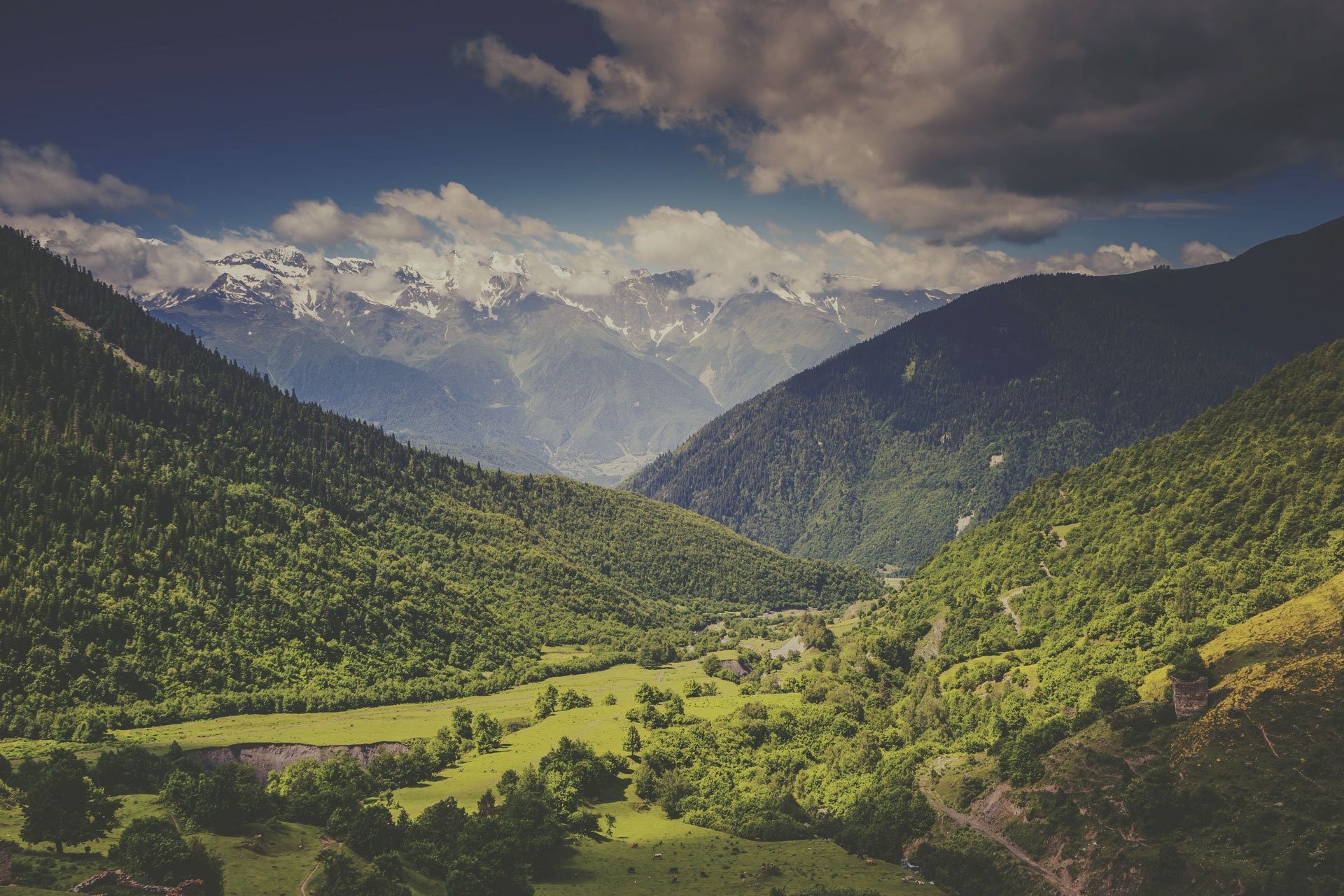
The annual Planetary Security conference was held in The Hague, The Netherlands on 12 and 13 December 2017. It brought together nearly 300 senior policy-makers, diplomats, military leaders, researchers, NGOs
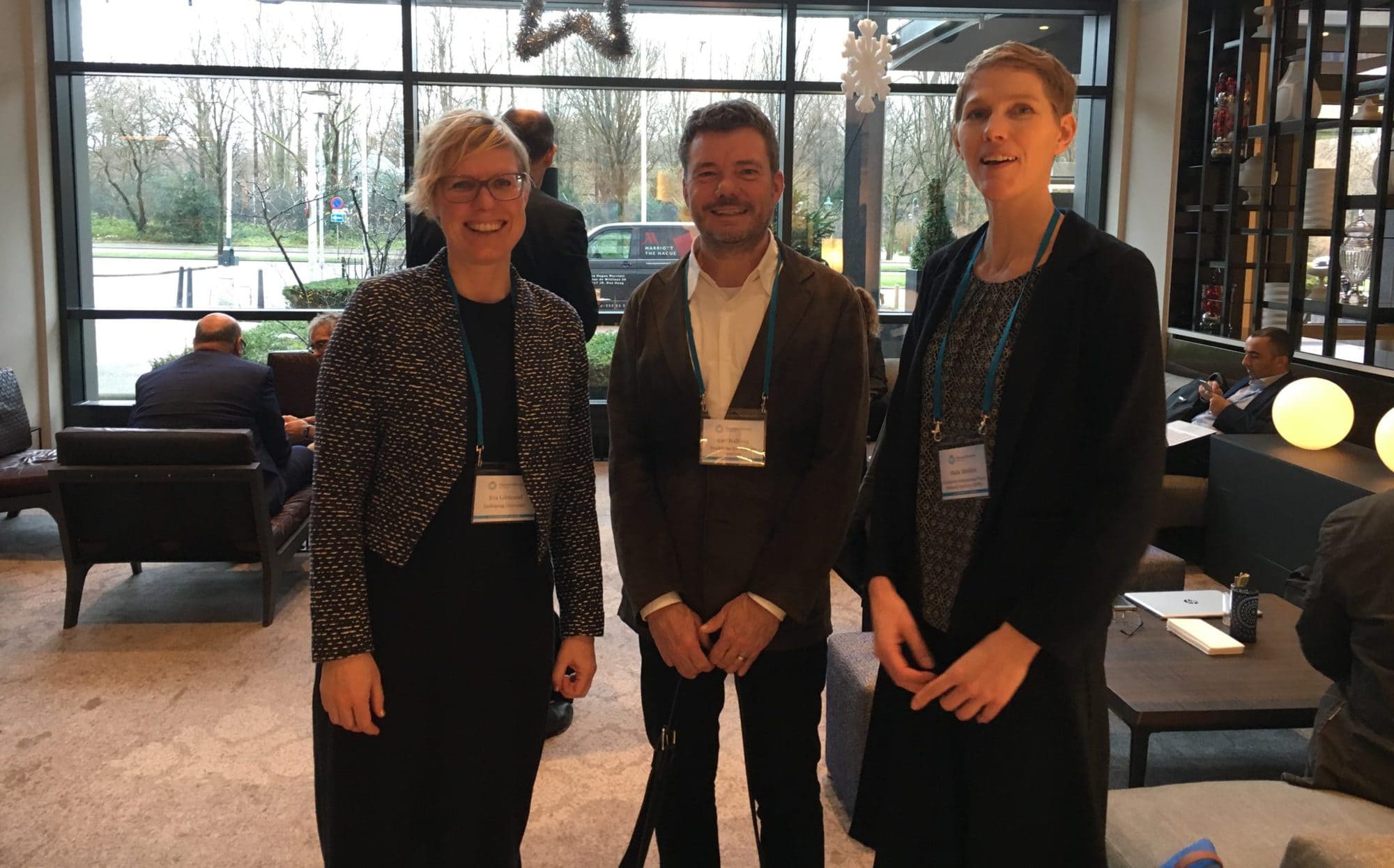
Climate security, resilience and peace-building in Africa featured largely during last month’s Planetary Security Conference. Dr Eva Lövbrand, Senior Lecturer at Linköping University and Dr Malin Mobjörk, Senior Researcher at SIPRI; both deeply involved in the Mistra Geopolitics Programme were present. Here, they give a hopeful reflection with focus on Africa.
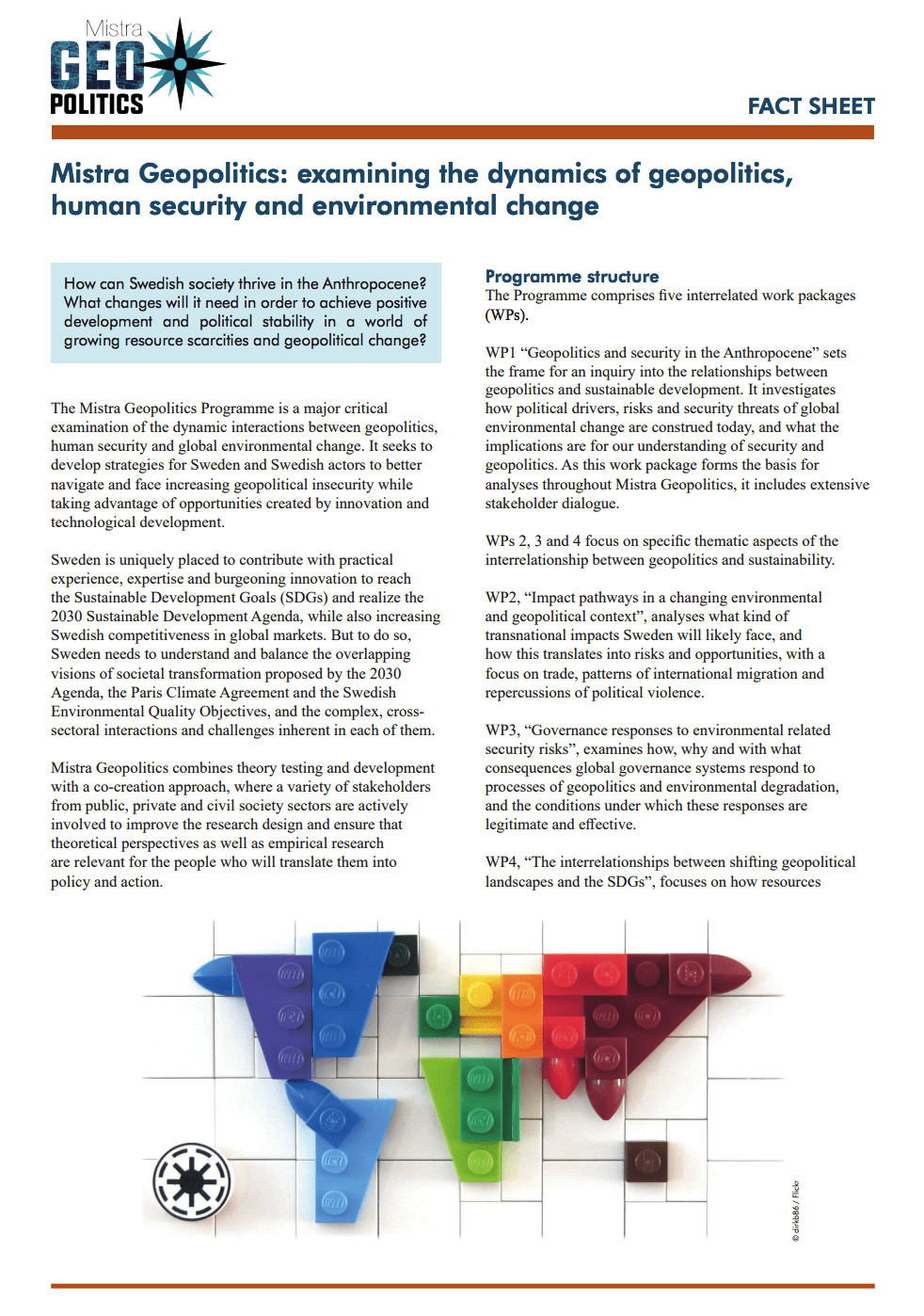
How can effectiveness be understood and measured, given the uncertainty and long temporal scales involved in climate security challenges? Read more in this new fact sheet from Mistra Geopolitics’ researchers about
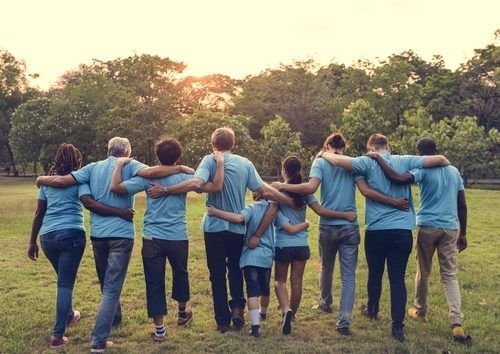
Here is an opportunity for PhD students from low and middle-income countries to join the Mistra Geopolitics Research School in Sweden for the Autumn Semester 2018. In this call you find more
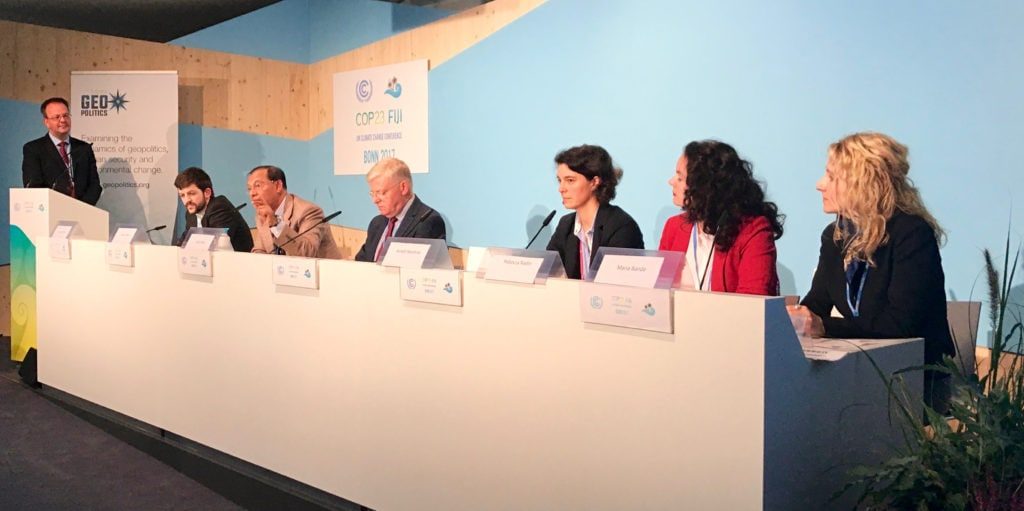
Borderless climate risks have the potential to severely hamper or completely roll-back progress made on building resilience through climate change adaptation. Can they be addressed in the follow-up of the
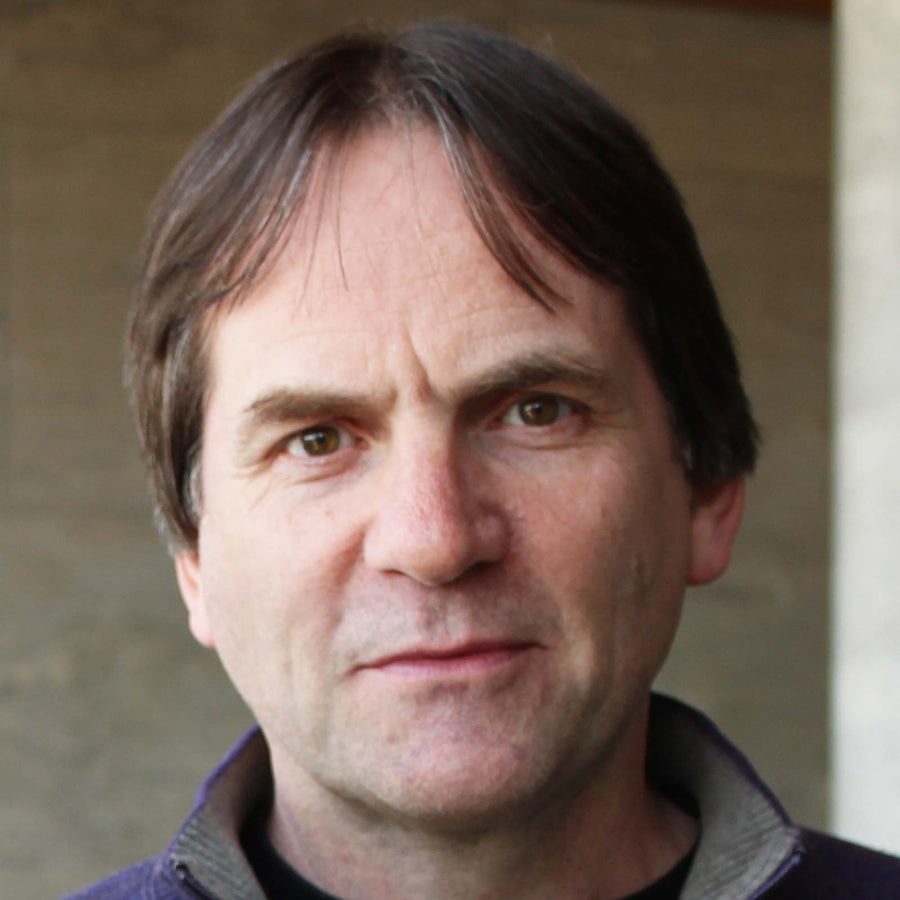
Simon Dalby is the CIGI Chair in the Political Economy of Climate Change at the Balsillie School of International Affairs, who works in the disciplines of environmental security and critical geopolitics. This
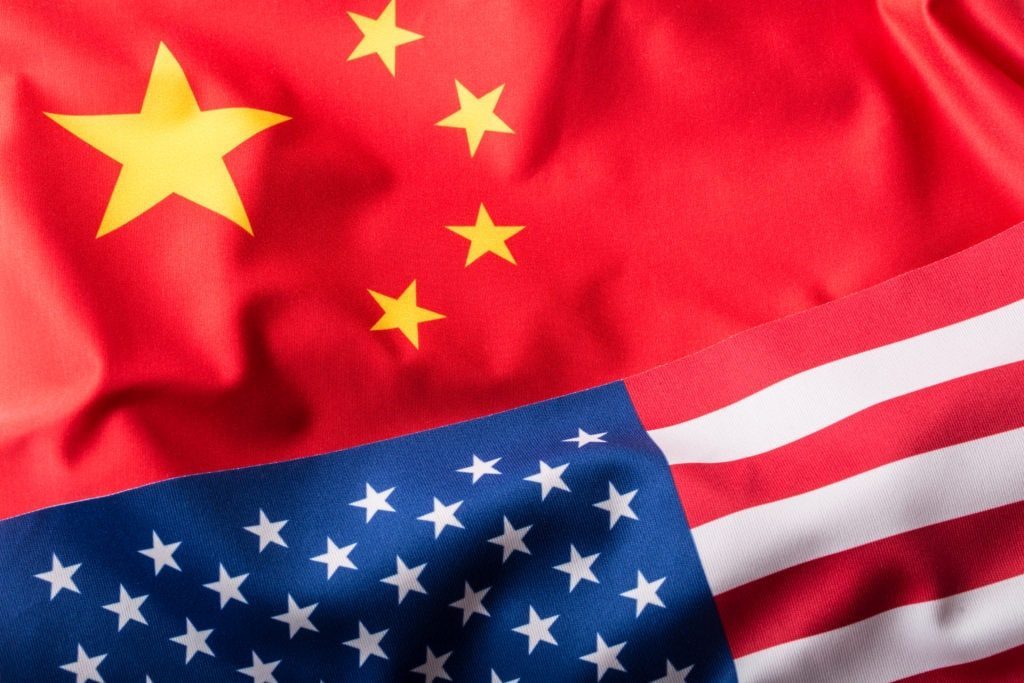
Mistra Geopolitics was co-hosting a seminar about the OECD report “Investing in Climate, Investing in Growth” on December 6. Kevin Adams from SEI made those reflections afterwards, which also serves as a


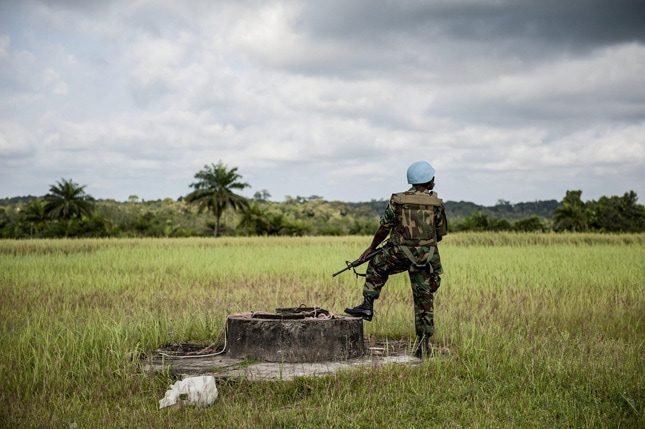


© Mixed Alternative/Flickr Although Parties to the United Nations Framework Convention on Climate Change (UNFCCC) have agreed to limit warming to “well below” 2°C, the nationally determined contributions (NDCs) that